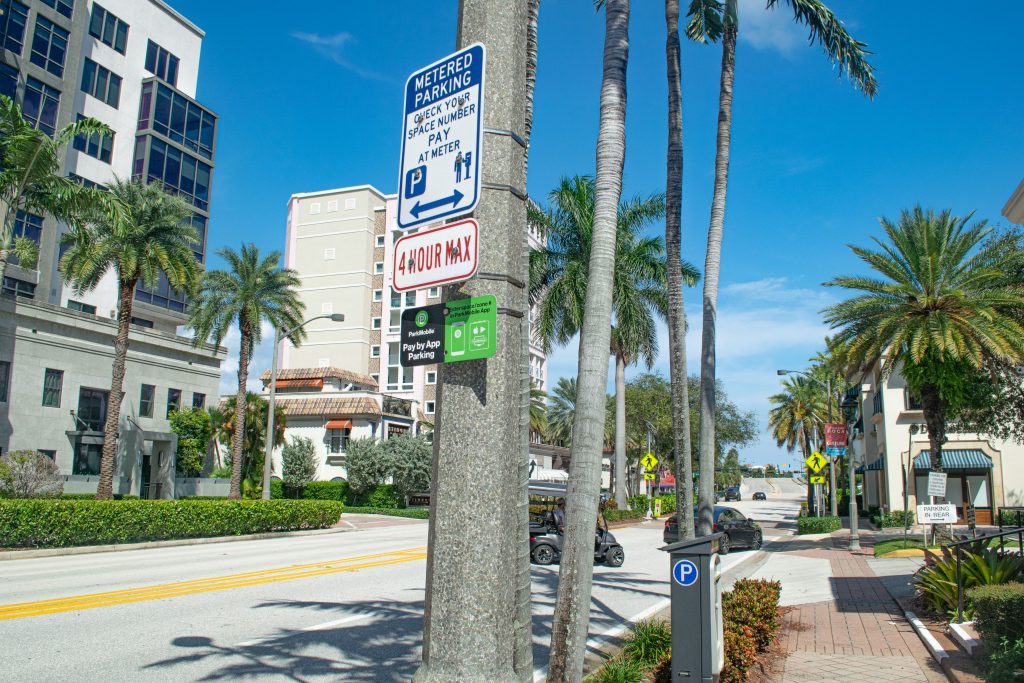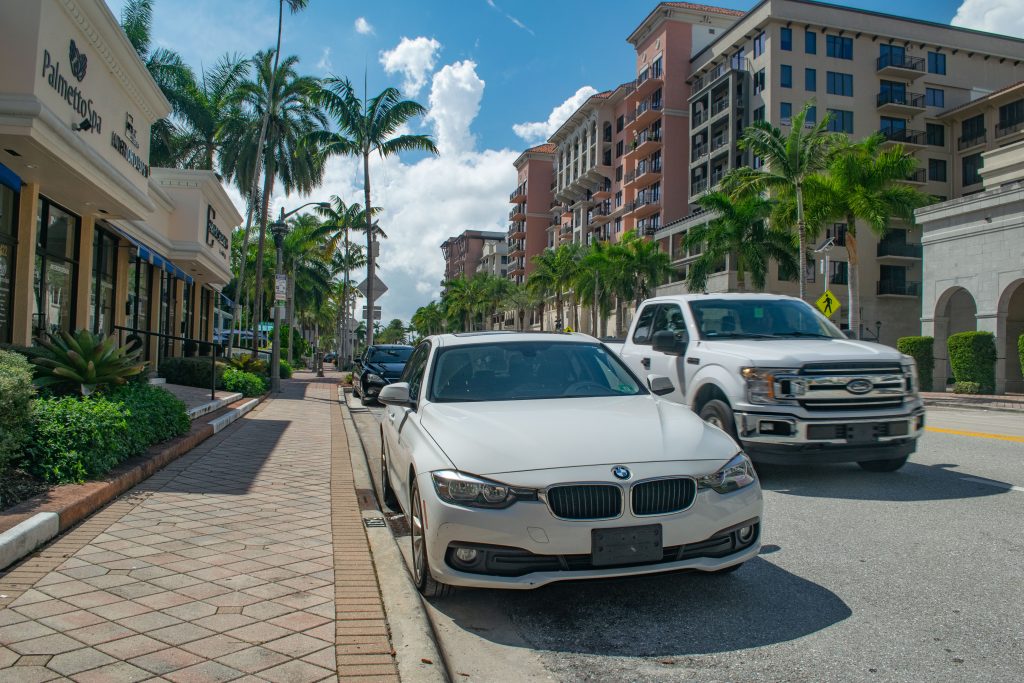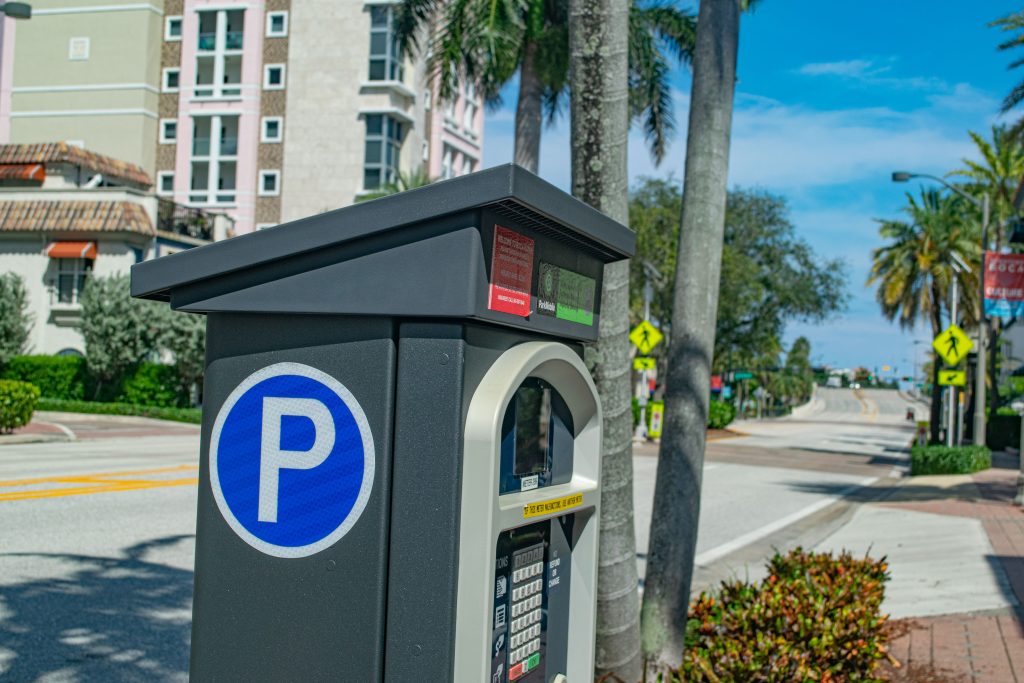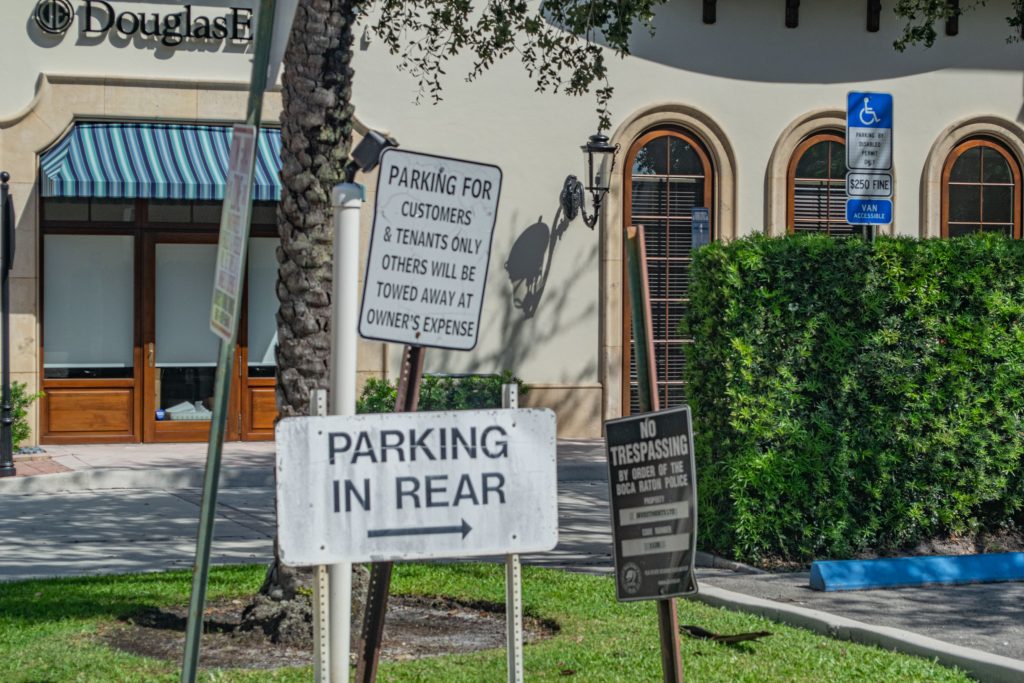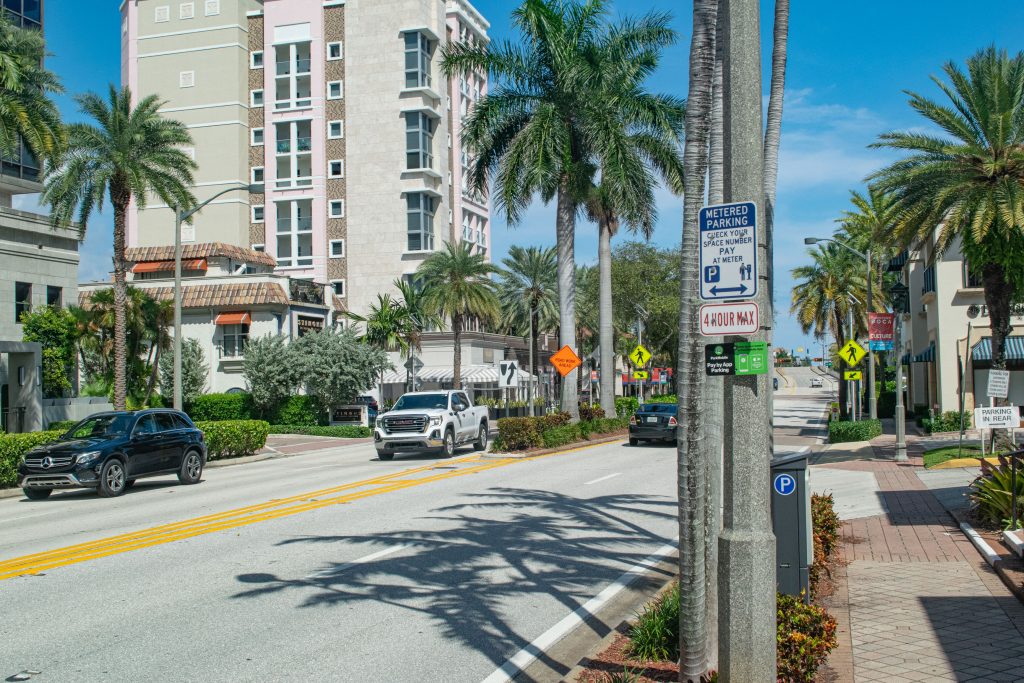Boca Raton officials said they implemented a metered parking program in the city’s downtown district to spur business and keep traffic moving, however some business owners have said the regulations have proven a hindrance in some scenarios.
At a meeting this week of the city’s Community Redevelopment Authority, made up of city council members, staff and elected officials discussed potential solutions to the issue, including simply removing parking regulations from some spaces and waiting for technology to improve that would enable better management of the parking system as a whole. The discussion came on the heels of concerns raised by a number of small business owners who have said their customers are dissuaded from coming to their establishments because they could be forced to pay to park for what amounts to a five minute-long visit.
“I’ve heard it from business owners and customers, too,” said Councilman Marc Wigder. “Whether it’s a coffee drinker or the guy at a dry cleaner picking up his suits, it’s a five minute thing and process for ‘feeding the meter’ is longer than the business activity that’s happening. That’s discouraging to people and, I think, businesses.”
Meanwhile, demand for parking has increased, leading vehicles to take up spaces for the maximum four hours allowed.
“We went from zero paid parking to total paid parking,” said Wigder, who suggested adding free, short-term parking spaces in “strategic locations.”
Though the city generates about $2 million per year from parking meters and just under half that in fines, revenue was never the intent of the metered parking, and enforcement comes with its own costs.
“The reason the parking meters are there are not to raise revenue, they’re to encourage turnover,” said Mayor Scott Singer, acknowledging the issue.
City staff said solutions exist, but implementing them may be more difficult than some may realize.
“One of the things we can do is to add a free parking option to the downtown area,” said Steven Timberlake, Special Projects Manager for the down redevelopment district.
In the case of a free parking option, motorists would park their cars and go to a meter as always, but select a “29 minute” option that would place a half-hour limit on the space. That way, specific spaces would not have to be designated as short-term spaces, opening up the entire downtown area to those who need to quickly conduct business. A downside to this option, however, is that many spaces are reserved using the ParkMobile smartphone app, which charges parkers a service fee of 30 cents per transaction. This fee would apply each time someone uses the app – even at a free space – since the app developer charges the consumer directly.
Other options include physically designated specific spaces for short-term parking, or adding sensors to certain spaces that would monitor whether a vehicle is parked there for more than a half-hour.
“The challenge for us is that most of our parking is on-street,” said Timberlake. “The technology we’ve seen for on-street actually involves drilling holes and putting sensors in. They weren’t reliable when we’ve seen them before, but we’re hoping technology advances.”
Councilwoman Fran Nachlas said that, at least in the short term, a number of designated free spaces should be considered.
“I like the idea of a few short-term spots, strategically placed,” she said. “There are places where people are going to take five minutes running in, and the meters are just a hassle.”
Yet another option would be adding short-term paid parking to the downtown area.
“When I go to Delray, their times are very flexible before their peak hour,” said Councilwoman Yvette Drucker. “People there are coming in and out, and you see them. I was in Mizner Park recently, and people were struggling with the meters.”
No action was taken on the issue this week, but Timberlake said city staff will be attending a parking and traffic technology seminar in the near future, where they will bring up the issue with vendors and search for automated solutions that can fit in with the city’s overall parking meter program. Alternatively, the option for permanently designated some spaces as free and short-term remains open.
“We’re going to a couple trade shows to see how we can implement that in the near future,” said Timberlake.
Nachlas said the issue was raised partly after some long-time Sanborn Square business owners raised concerns that the regulations were costing them sales.
“They’ve owned the store a lot longer than we’ve had parking meters in place, and now they don’t have any parking available to their customers,” she said. “They complain their business has gone down because their customers don’t know how to use the parking meters.”
The top concern among city staff was ensuring that free short-term spaces, if implemented, would not be abused – a concern shared by several council members, including those seeking changes in the area. Officials are expected to take up the discussion again after staff members conduct research into parking technology.

Follow Us on Facebook

Police, Fire & Courts
West Boca Man Charged With Pulling Gun on Teen Who Rang Doorbell As Prank

Boating & Fishing
Boca Inlet (Mostly) Clear As Dredging Fights Sand Pileup

Police, Fire & Courts
West Boca Man Charged With Pulling Gun on Teen Who Rang Doorbell As Prank

Boating & Fishing
Boca Inlet (Mostly) Clear As Dredging Fights Sand Pileup

Boating & Fishing
Boca Inlet (Mostly) Clear As Dredging Fights Sand Pileup

